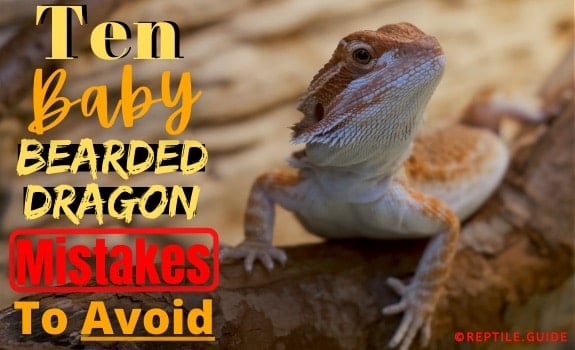
A Comprehensive Guide to Caring for Baby Bearded Dragons
Introduction
Bearded dragons are a popular choice for reptile enthusiasts due to their docile nature, ease of care, and striking appearance. While they are generally hardy animals, baby bearded dragons require specific care to ensure their health and well-being. This comprehensive guide will provide you with all the essential information you need to properly care for your baby bearded dragon, from housing and feeding to health and socialization.
Housing
Enclosure:
- Size: For baby bearded dragons, a 20-gallon terrarium is sufficient. As they grow, you will need to upgrade to a larger enclosure, eventually reaching a minimum of 40 gallons for an adult.
- Substrate: Use a substrate that is safe for bearded dragons, such as reptile carpet, paper towels, or a mixture of sand and soil. Avoid substrates like cedar shavings, which can be toxic.
- Heating: Provide a basking spot with a temperature gradient ranging from 95-110°F (35-43°C) on the warm end to 75-85°F (24-29°C) on the cool end. Use a heat lamp or ceramic heat emitter for this purpose.
- Lighting: Bearded dragons require both UVB and UVA lighting. UVB is essential for calcium absorption and bone health, while UVA helps regulate their circadian rhythm. Use a specialized reptile bulb that emits both types of light.
- Humidity: Baby bearded dragons require a humidity level of around 30-40%. Mist the enclosure lightly once or twice a day to maintain this level.
Feeding
Diet:
- Insects: Baby bearded dragons are primarily insectivores. Offer a variety of live insects, such as crickets, dubia roaches, and mealworms. Dust insects with calcium powder several times a week.
- Vegetables: As they get older, bearded dragons will start to eat vegetables. Offer a variety of chopped greens, such as collard greens, dandelion greens, and carrots.
- Water: Provide a shallow water dish at all times.
Feeding Schedule:
- Baby dragons (0-6 months): Feed 2-3 times a day.
- Juvenile dragons (6-12 months): Feed 1-2 times a day.
- Adult dragons (over 12 months): Feed every other day or as needed.
Health
Common Health Issues:
- Metabolic Bone Disease (MBD): Caused by a deficiency of calcium and UVB. Symptoms include soft bones, lethargy, and seizures.
- Respiratory Infections: Can be caused by bacteria, viruses, or parasites. Symptoms include sneezing, wheezing, and difficulty breathing.
- Parasites: Internal or external parasites can cause a variety of symptoms, including weight loss, diarrhea, and lethargy.
Signs of Illness:
- Lethargy
- Loss of appetite
- Swollen or discolored eyes
- Runny nose or sneezing
- Diarrhea or constipation
- Unusual behavior
Prevention and Treatment:
- Provide a proper diet and adequate UVB lighting to prevent MBD.
- Keep the enclosure clean and disinfected to reduce the risk of respiratory infections.
- Regularly check for parasites and treat as necessary.
- Consult a veterinarian if you suspect your dragon is ill.
Socialization
Handling:
- Handle your baby bearded dragon gently and frequently to socialize it. Start with short sessions and gradually increase the duration as they become more comfortable.
- Support their body and avoid sudden movements.
- Wash your hands before and after handling.
Companionship:
- Bearded dragons can be kept singly or in pairs. If you choose to keep multiple dragons, ensure they are of similar size and temperament.
- Provide plenty of hiding places and basking spots to reduce aggression.
Conclusion
Caring for a baby bearded dragon is a rewarding experience that requires dedication and proper knowledge. By providing a suitable enclosure, feeding them a nutritious diet, maintaining their health, and socializing them appropriately, you can ensure that your dragon thrives and brings you years of enjoyment. Remember to consult a veterinarian for any health concerns or if you have any questions about their care.
